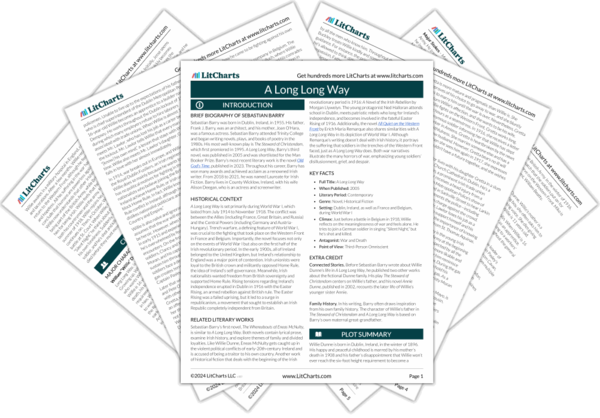Willie’s childlike awe at seeing a foreign land for the first time and his visions of glory both showcase Willie’s youthful naivety. Willie’s trust in his fellow soldiers contributes to his sudden burst of confidence. However, arriving in France brings the reality of war closer to Willie in a frightening way. Although he doesn’t know what to expect, Willie feels an ominous terror, suggesting that war is something to fear and dread, not celebrate.
